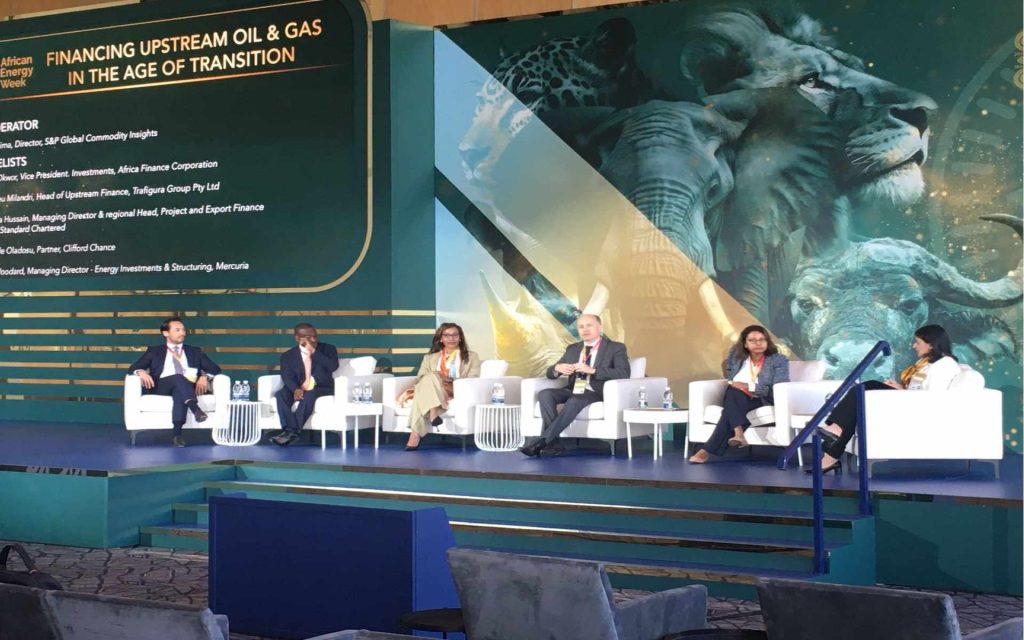Finance Summit Unpacks O&G Investment Trends Amid Age of Energy Transition at AEW 2024

Global investment in upstream oil and gas is set to reach $570 billion by the end of the year – a 7% increase compared to 2023 expenditure. Of this, 33% is expected to be directed toward frontier assets, presenting a strategic opportunity for emerging oil and gas markets in Africa.
However, as the global energy landscape undergoes a transformative shift towards cleaner energy sources, the African oil and gas sector faces unique challenges in securing financing. A panel discussion at this year’s African Energy Week (AEW) 2024: Invest in African Energies conference explored investment opportunities in the upstream oil and gas sector in the age of the global energy transition.
“As a development financing institution, we are focused on sustainable investment,” stated Vice President of the Africa Finance Corporation, Taiwo Okwor, adding, “When we look at the upstream, we want to work with partners who are very committed to enabling the economy of Africa.”
Speakers during the session noted that the strongest opportunities for upstream investment in Africa exist in the mergers and acquisitions (M&A) space. In Africa and the Middle East in Q2 2024, a total of 27 M&A deals were announced, worth a combined value of $2.3 billion.
Fathima Hussain, Managing Director, Oil & Gas Corporate Finance at Standard Chartered Bank stated, “If we look at the last 18-24 months, there’s a lot of activity still happening in upstream financing. We’re seeing a lot more activity on the M&A front.”
Echoing these sentiments, Luke Woodward, Managing Director for Energy Investments and Structuring at Mercuria added, “This has provided opportunities for new players – both international and indigenous, both public and private to diversify their portfolios.”
The speakers further highlighted the current trends in the oil and gas industry’s financing landscape, noting that divestments from majors and international oil companies (IOCs) offer the potential for new local and international players to enter the market.
“Some of the very big international banks and even multilaterals that used to provide capital to oil assets, no longer do so. What we’re seeing are slightly different trends, with much bigger participation from traders. When it comes to financing upstream development, we are seeing slightly different players coming in,” stated Olamide Oladosu, Partner at London-based law firm, Clifford Chance LLC.
Meanwhile, a fireside chat with African Export-Import Bank (Afreximbank) emphasized the need to drive investment in energy, infrastructure and the energy transition to bring reliable power to the 600 million Africans across the continent who lack access to electricity.
Afreximbank Executive Vice President, Haytham El Maayergi, expressed their support of trade financing, value addition, local content building and infrastructure in an effort to eradicate energy poverty by 2030.
“Afreximbank now operates in 53 countries in Africa,” El Maayergi stated, adding, “We want to focus on industries that create jobs and create capacity building. All of our development efforts focus on helping African countries own their infrastructure, which is a massive mandate.”

